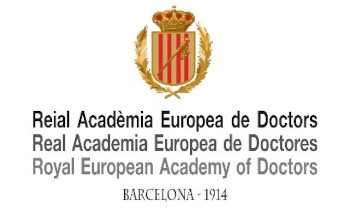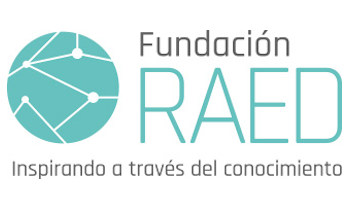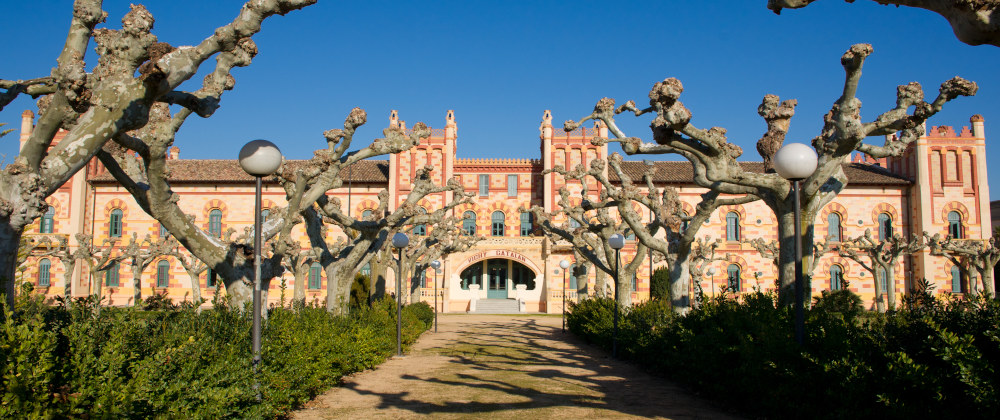Breve descripción
Academic Act in Vichy Catalán
Academic event organized jointly between the Royal European Academy of Doctors and the Pro Royal European Academy of Doctors Foundation at the Vichy Catalán Hotel-Spa.
The events had the same format than this type of meetings, with 15-minute conferences, of varied topics and general interest.
Venue: Vichy Catalán Spa Hotel – Avda. Dr. Furest, 32. 17455 Caldes de Malavella, Girona
Event date: From February 28 to March 1, 2020
The RAED celebrates its III Scientific Meeting at the Vichy Catalán Spa Hotel
The Royal European Academy of Doctors-Barcelona 1914 (RAED) returned to the Hotel Balneario Vichy Catalán, in Caldes de Malavella, to celebrate its III Scientific Meeting after the great experience of the first two editions. The appointment was the weekend between February 28 and March 1 and had the same format as the previous meetings with the intention of combining science, relaxation and gastronomy. Beyond the scientific conferences, with lectures lasting no more than 15 minutes, the participants had all the services and the thermal tour of the Hotel Spa and enjoyed a gastronomic experience at the prestigious Celler de Can Roca-Mas Marroch.
The scientific sessions were opened with the intervention of the president of Vichy Catalán and honorary academic of the RAED, Joan B. Renart, who presented some of the new research that the company’s R&D department is doing to find products that help slow brain aging. Then, the president of the Academy, Alfredo Rocafort, welcomed the participants, recalling that from the first to this third year, the number of attendees and the number of presentations have been increasing.
Maria Àngels Calvo, academic and vice president of the RAED, presented the latest data on the coronavirus epidemic, given the importance of the issue. From his exhibition there were interventions in which all kinds of material were addressed, such as the most unknown facet of Santiago Ramón y Cajal, an approach to the figure on the centenary of his birth of Benito Pérez Galdós or the curiosity of how a Typography like Futura was the first to arrive and stay on the moon thanks to the Apollo XI mission.
Economic issues related to investments in Latin America, the risks of investing in the stock market, Heijunka sequencing, the social, economic and political characteristics of private justice practices applied to mediation or arbitration, or the explanation of how business results can be addressed were also addressed. improve with the assimilated application of quantum theories.
Christine Hart, honorary founder of the Pro Real Academia de Doctores Foundation, presented her platform dedicated to environmental issues, My Planet First, and along the same lines, topics related to food sustainability and health through the maintenance of the microbiota were presented . The corresponding academic elected for Hungary Barnabás Kovacs, former consul general of his country in Barcelona until a few months ago, explained the advantages that Hungary has when it comes to receiving foreign students due to the facilities it offers and the living costs that they can find there, in addition to the quality of its institutions.
Other interesting topics that were addressed were those referring to the history of the hat known as Panama, even though it was originally from Ecuador, how the so-called Dieselgate, which affected several car manufacturers, became a false and tendentious news, or how Menorca managed to The possible inclusion of some of its monuments in the Unesco catalog of World Heritage Sites was hardly adequate at the time. From the perspective of thought, a reflection on theology and its historical evolution and an interesting essay on happiness, offered by the corresponding elected academic Josep Moya, was addressed.
The second and last day was dedicated to the pharmacist Beatriz Carbonell, who for more than 30 years has carried out anonymously and alone, with the only help of her two children, a series of humanitarian missions to Latin America and Africa that in addition to having caused serious health problems due to infections contracted in these places, it has managed to mobilize infinite resources to bring school buses and more than 2,000 bicycles to these areas, as well as baby food, school supplies and medicines without institutional help.
For her part, the renowned writer and journalist Víctor Amela drew an interesting, intimate, passionate, delicate and sometimes subtle portrait of Federico García Lorca, of her contacts with the great names of the Spanishentsia of the time, of her vicissitudes in the residence. of students with Pepín Bello, Salvador Dalí or Luis Buñuel, of her trips, especially the one she made to Cuba, and the shocking trip she made to New York, from which one of her most famous books of poems came out. And above all and as a common thread of her exhibition, of the conference that the poet and playwright gave in New York, on the duende.
The academic act ended with a musical aperitif offered by a young 18-year-old pianist, Daniel Vilardell, who in addition to being an accomplished performer is studying Telecommunications Engineering and Mathematics and is a European champion of a surfing modality. His masterful rendition of “Caribe” by Michel Camilo, a prelude by Sergei Rachmaninov and a short piece by Johann Sebastian Bach put the perfect close to this annual academic event.
Event schedule
Photographs of the event






